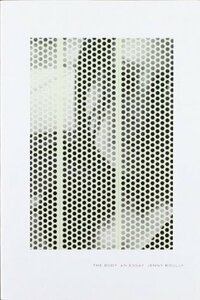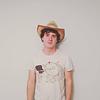Take a photo of a barcode or cover
“102. If the window is open, then true. If the door was abruptly shut, then false. If the villanelle was blonde, then add five points to your answer. If she was drinking a dirty martini, subtract 60 points for fear. If you forgot her name, wait out a turn. If love, then the ace of spades: for everything else, reshuffle and deal again.”
Il testo è composto da note a piè di pagina facenti capo ad un libro che non ci è dato conoscere. Un saggio non saggio che sfocia nella poesia per guarire dalla mania del controllo e capire che, anche senza fonte, non siamo pers*.
Il testo è composto da note a piè di pagina facenti capo ad un libro che non ci è dato conoscere. Un saggio non saggio che sfocia nella poesia per guarire dalla mania del controllo e capire che, anche senza fonte, non siamo pers*.
Carl told me I'd love this, that it was the perfect time for me to read it. And I did, and it was, though I don't know that I fully understood or absorbed all of it.
I've heard a lot about this book and was glad to finally get my hands on it. I'm interested in essay play and I was surprised to learn that pieces of this book had been published before as poetry. This is gratifying because I think the lines between poetry and essay can often become blurred, and for that matter between fiction and nonfiction as well. For any doubters of that massive, muddled gray zone, The Body is a great piece to test any hard and fast boundaries against. There's a lot of play with language and some playing with ideas. Is there truth to what happened in these pages? I'm not sure. There were wisps of a narrative, but I found those strands very hard to keep hold of. It did remind me of David Foster Wallace, who does a superb job of playing with essays via footnotes. Where DFW uses footnotes to explore alternatives ad infinitum, Boully focused more on absence. What does it mean to be present and what does it mean to miss something. Can you miss something that wasn't there? The text certainly could use another read through, but at this point I can say that yes, I do miss something that's not there. For my liking, there was just too little for me to hold onto and while I like the idea I was unable to really get into the text (or annotated lack of text).
Boully really stretches this gimmick to the limit, but as innovative as it is, I find myself grasping for anything else really. The premise is already evasive enough, so to layer on even more evasiveness on top of that feels a little more lazy than it does impressive. Overall, the adjective that continued to come to mind while reading this-- and it's not one I would use lightly-- was "pretentious." For every stellar sentence that was at least one more that made me roll my eyes.
challenging
emotional
mysterious
reflective
So much about the limitations of language and as the reader I was grasping. I loved the position this put me in. Especially the love letter / love lost sections— Sappho-esque. This is a brave work about incompleteness and it’s making me think a lot about the product of the book object
funny
reflective
fast-paced
What is the body that is also a void?
A collection of footnotes to an erased, lost, invisible or non-existent text
The main text is the reader’s to extrapolate.
Everything that is said is said underneath.
A good poem writes itself as if it doesn’t care.
The circus is a safe way to know falling.
The essence behind the curtain, the stage, is composed of the yearning to determine what may be seen and what will remain unseen.
dark
emotional
reflective
sad
slow-paced






